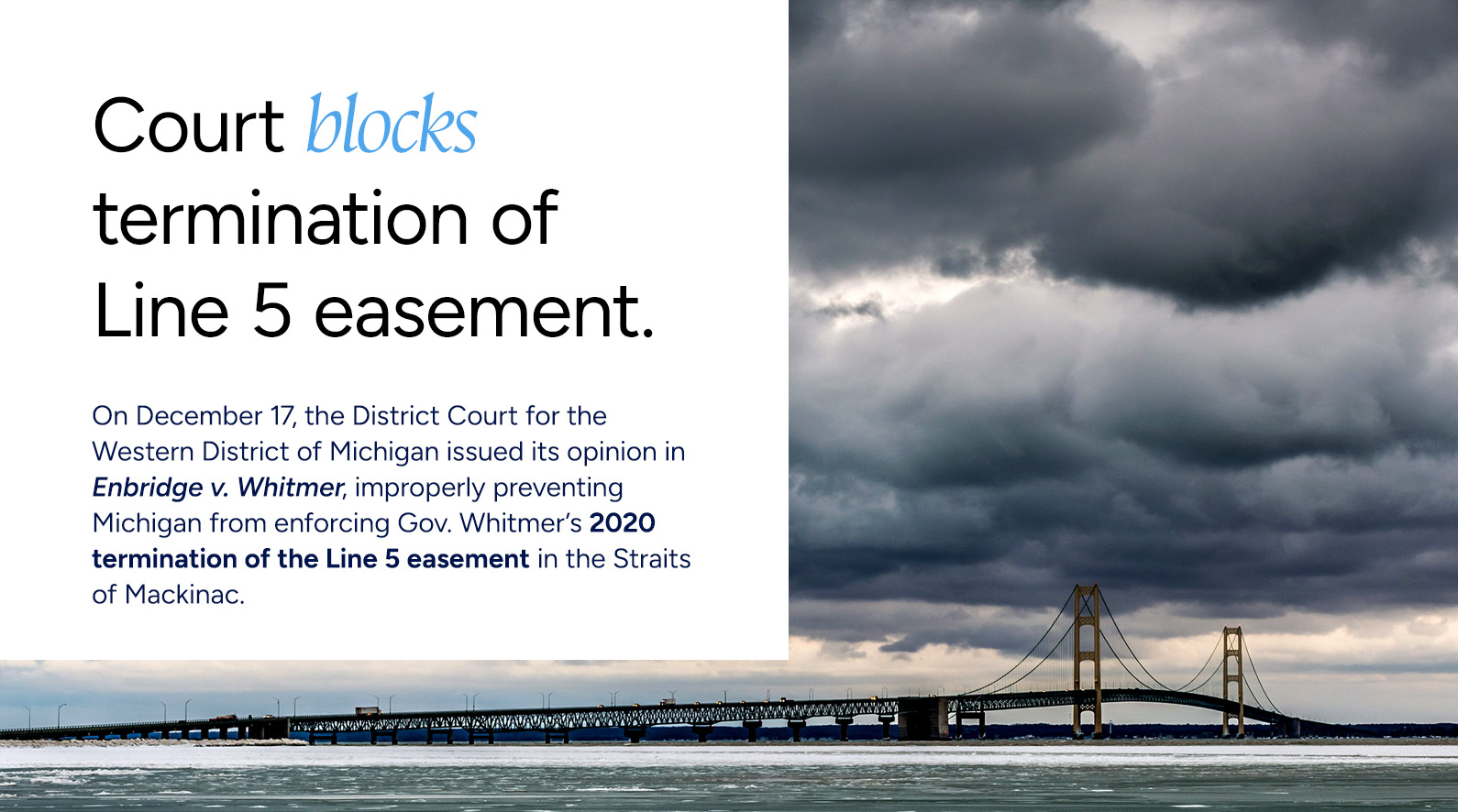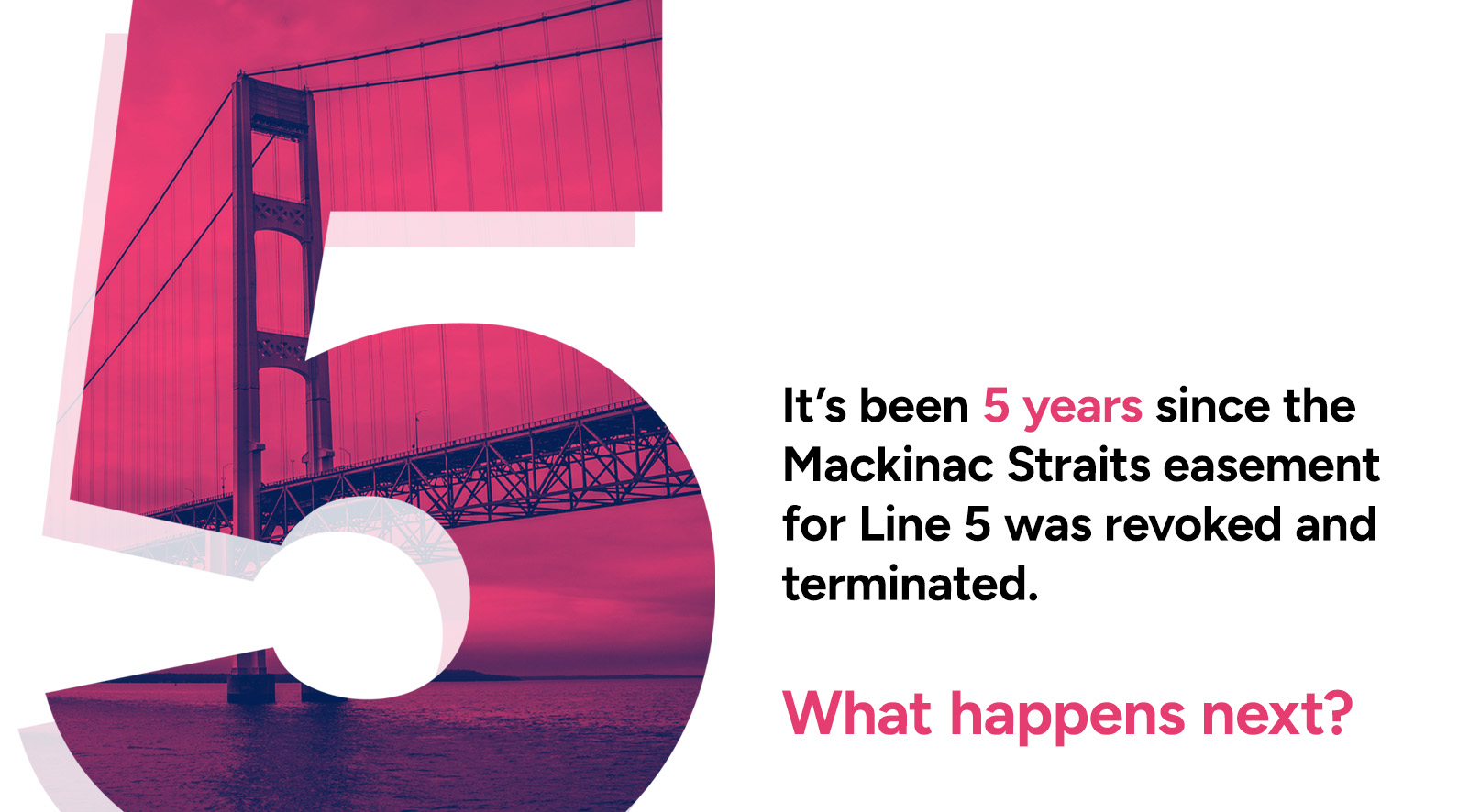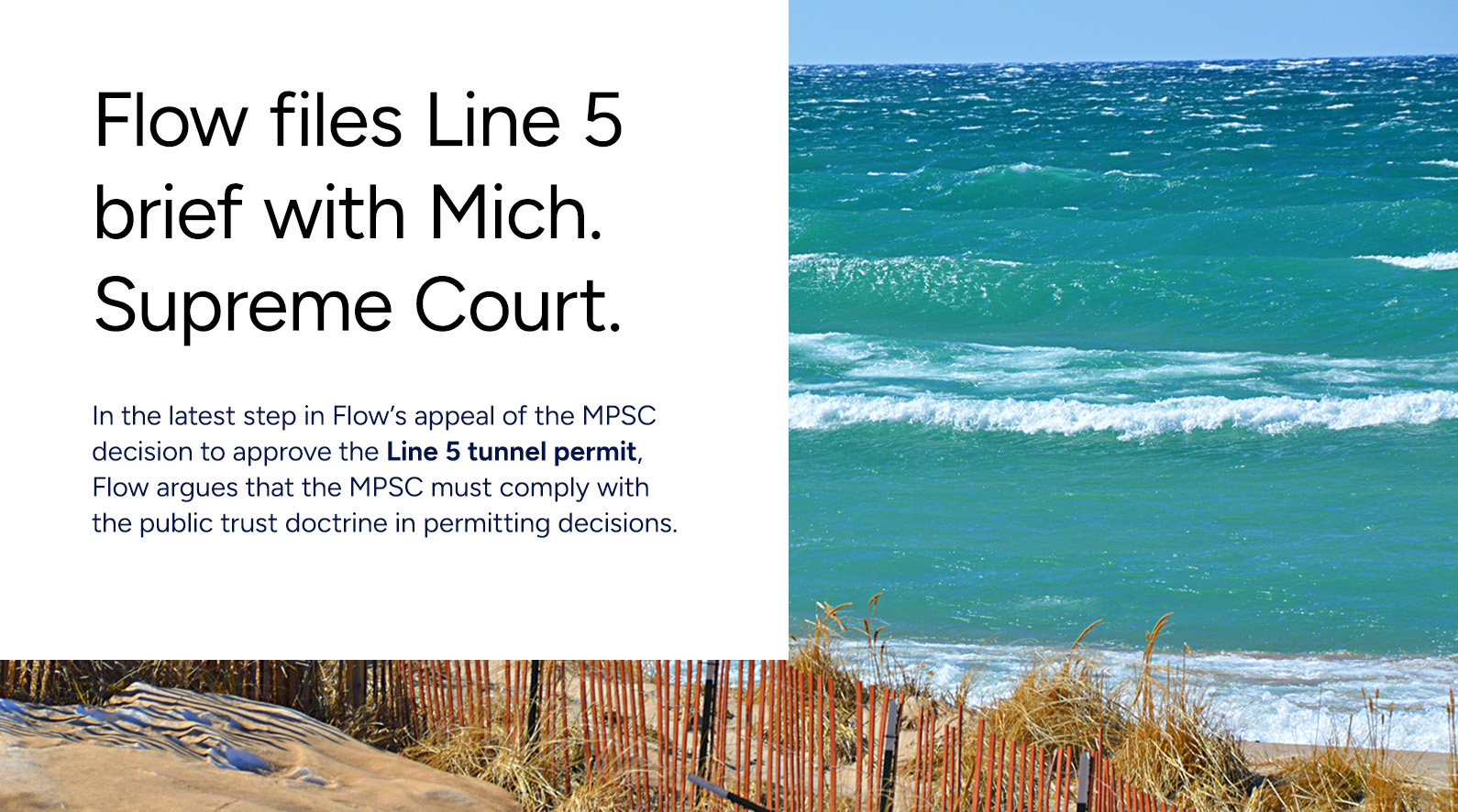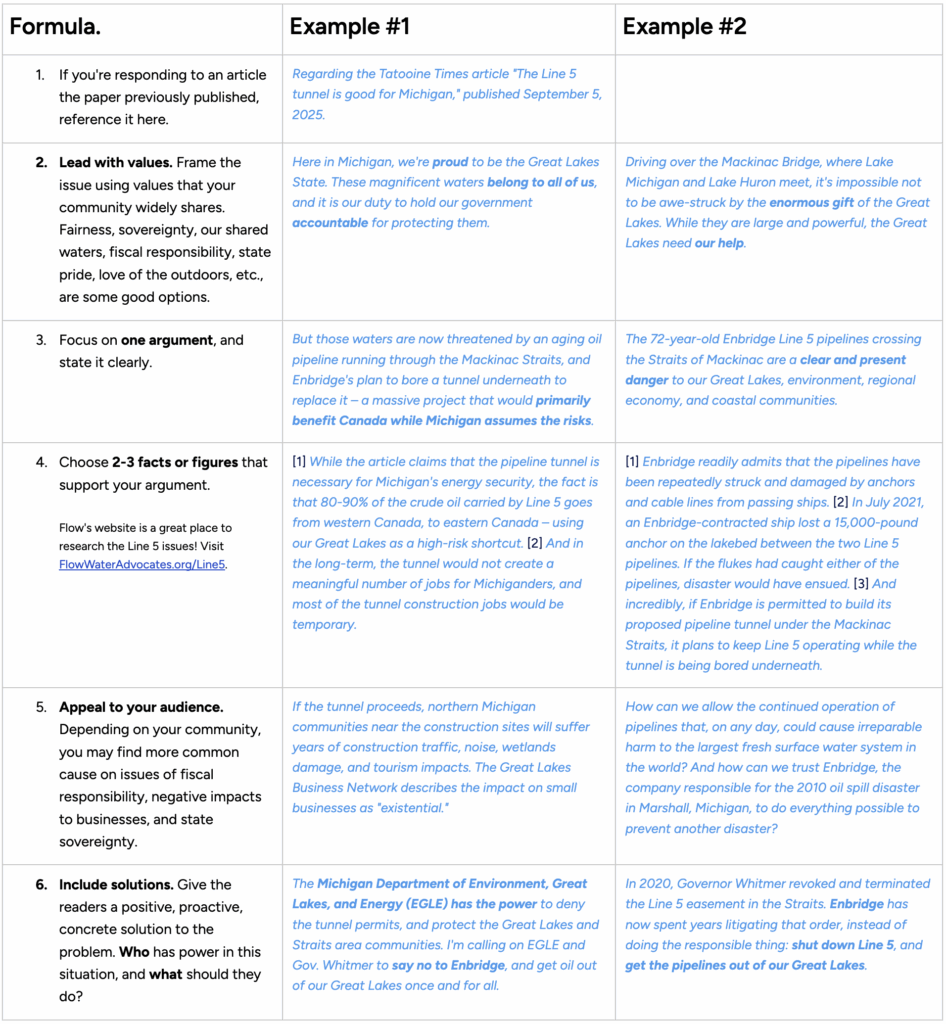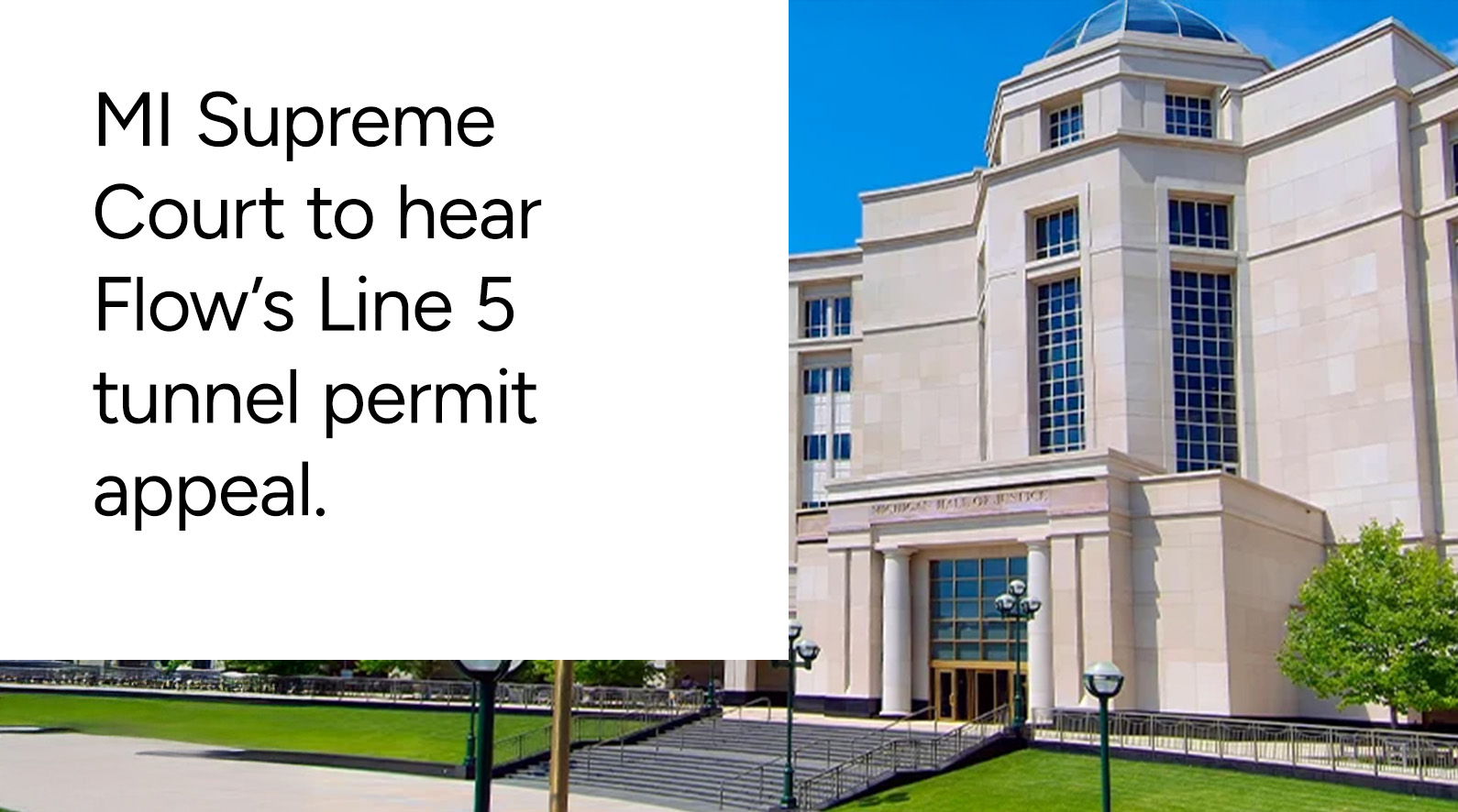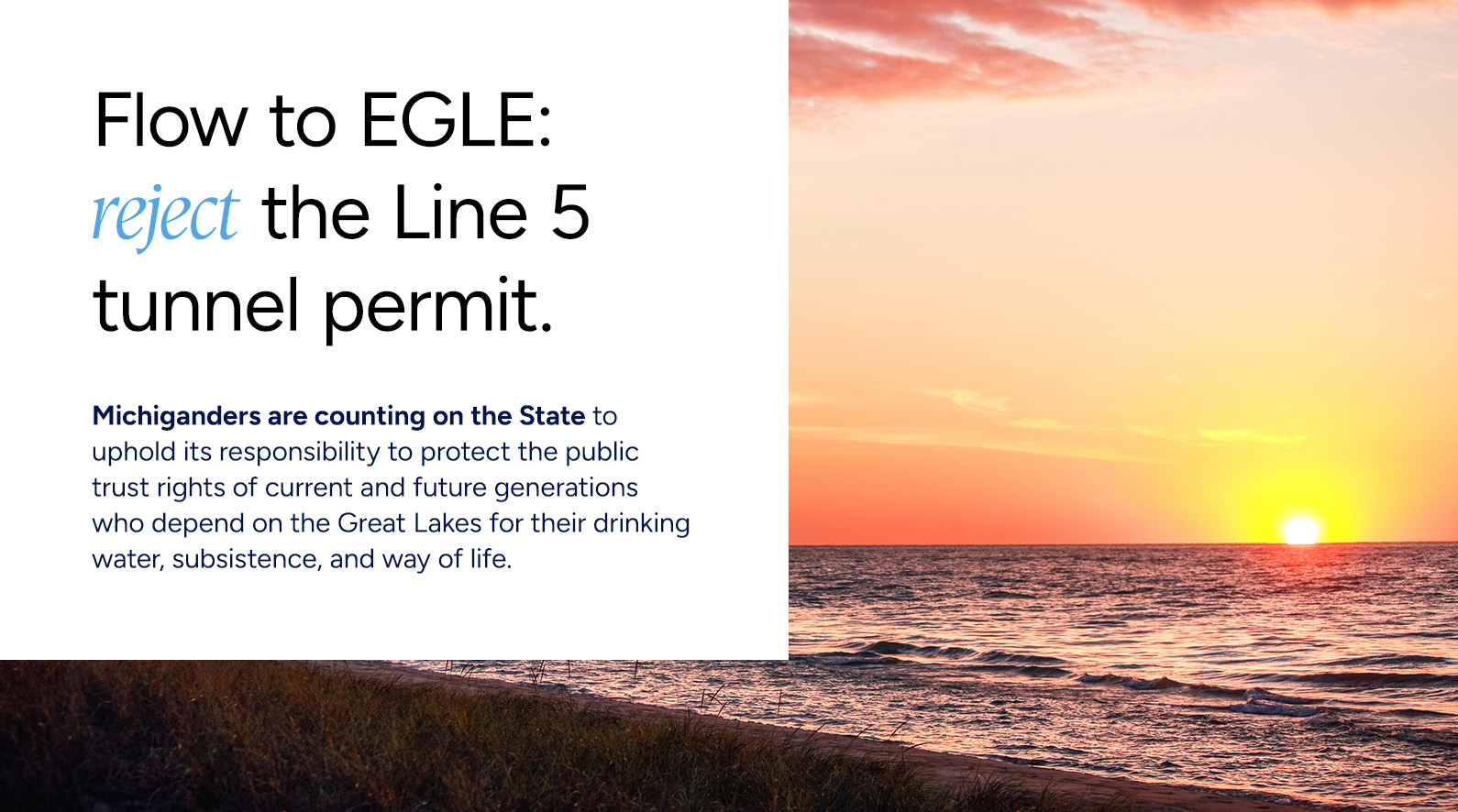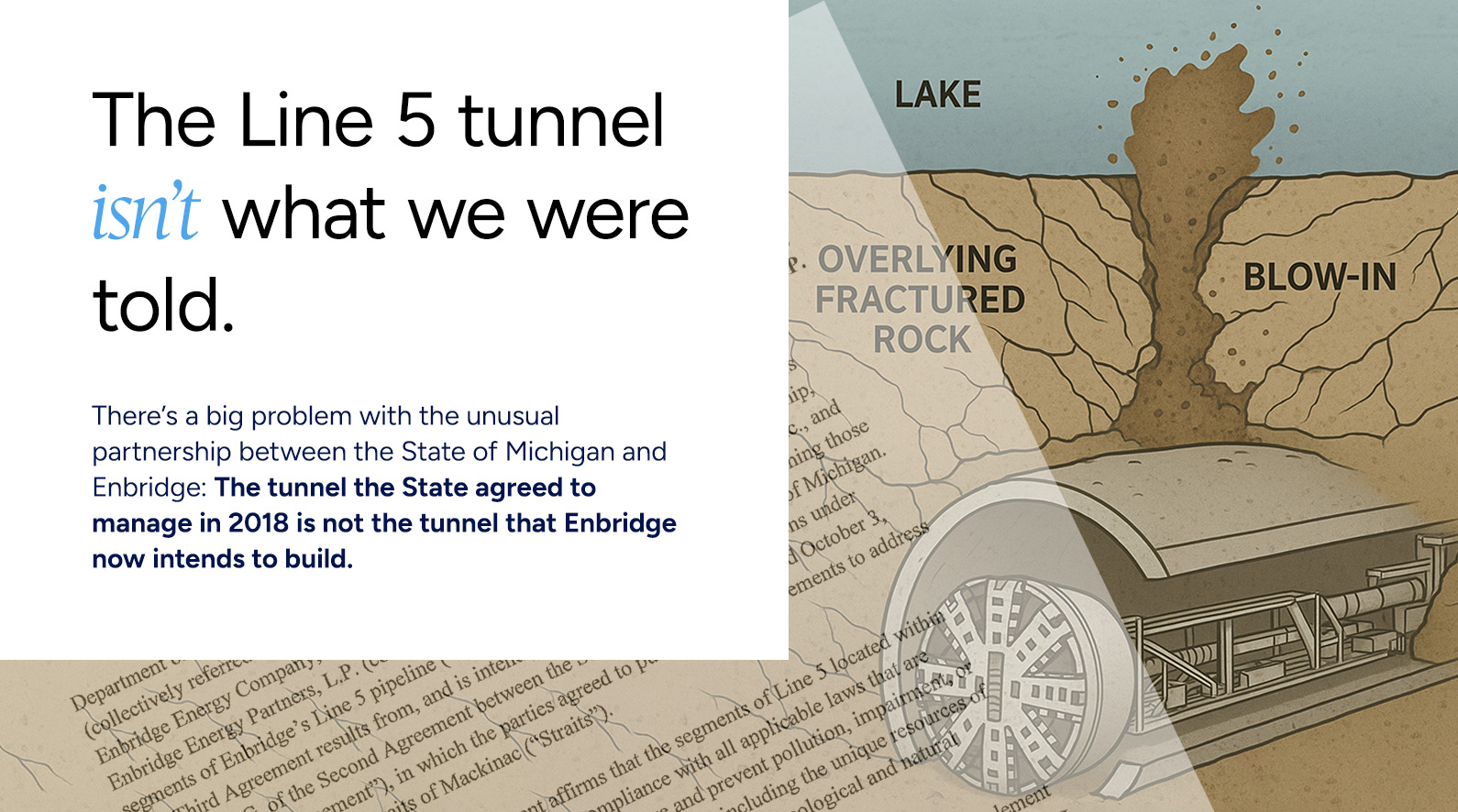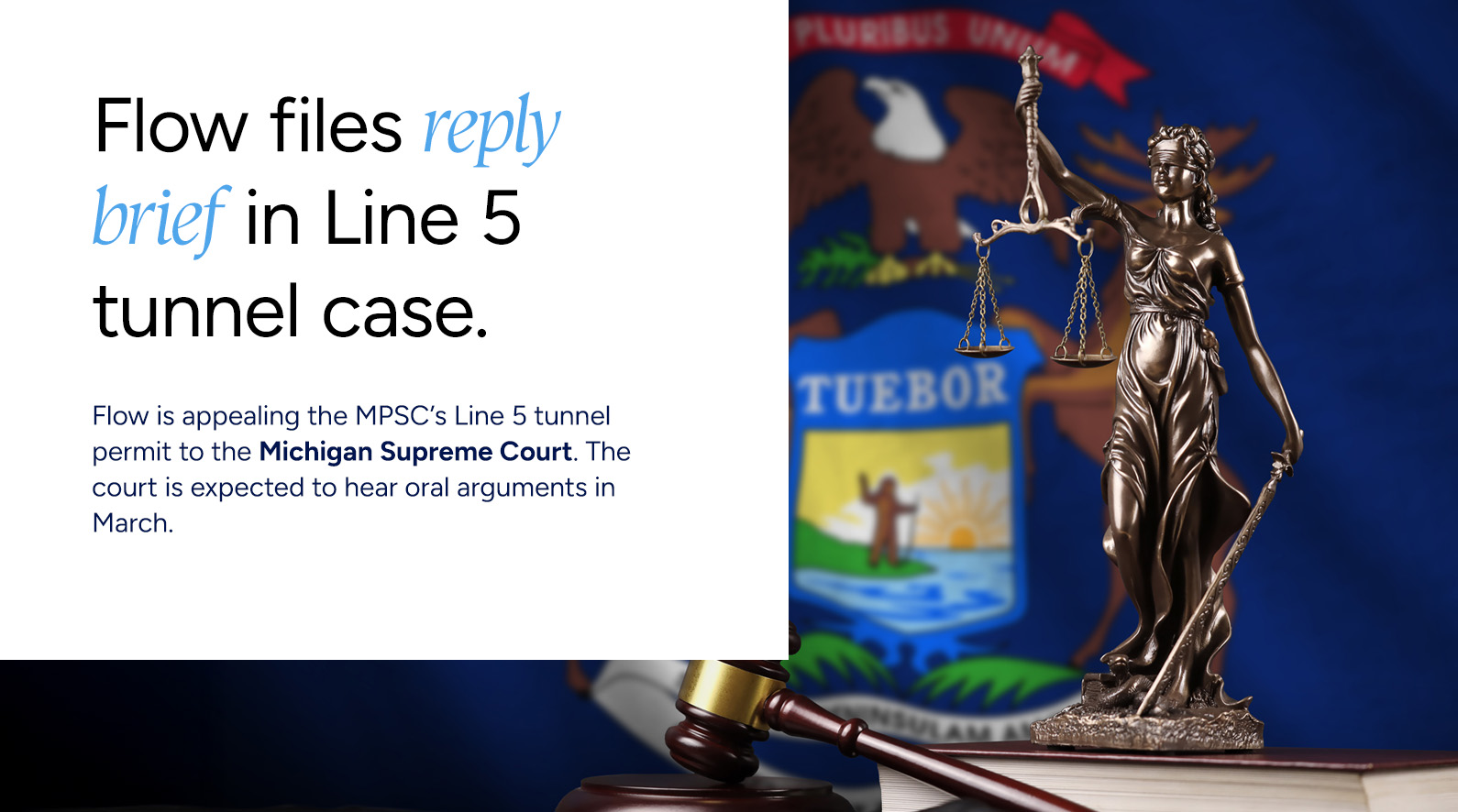
| Download Flow’s reply brief (PDF) |
Traverse City, Mich. — On January 23, Flow Water Advocates (“Flow”) filed its reply to the arguments raised by Enbridge Limited Energy LLC, the Michigan Public Service Commission (MPSC), and other Appellees in Flow’s Michigan Supreme Court case challenging the MPSC’s issuance of a permit to the company for its proposed Line 5 pipeline tunnel through the Straits of Mackinac.
The Office of the Michigan Attorney General and the Great Lakes Business Network filed amicus briefs in support of Flow. The parties now have the opportunity to respond to adverse amicus briefs, due on February 13. The court will hear oral arguments in March.
In its brief, Flow argues that under the Michigan Environmental Protect Act (MEPA) and the common-law public trust doctrine, the MPSC has an obligation to withhold authorization for the tunnel project unless and until EGLE determines that the tunnel will not impair the public’s rights to the Great Lakes “waters and [the] lands beneath them” (Glass v Goeckel (2005); see also Collins v Gerhardt (1926)). Neither EGLE nor any state entity has made such a determination.
Support Flow’s work to defend the Great Lakes.
Notably, EGLE is currently reviewing a new, modified permit application from Enbridge. It is seeking additional information about the environmental impacts and alternatives to the tunnel because, according to EGLE, Enbridge has thus far failed to demonstrate that the project will not create untenable risks or violate Great Lakes Submerged Lands Act (GLSLA) standards.
In September, the Court granted Flow and other parties a landmark application for leave to appeal, paving the way for a review of the MPSC tunnel permit. The court specifically directed the parties to address whether the MPSC is required to comply with the common law public trust doctrine in its permitting decisions. Flow’s reply brief can be downloaded in full from its website, FlowWaterAdvocates.org/Line5.
Flow is represented in this case by its legal team and co-counsel, Kanji & Katzen, P.L.L.C. and Olson & Howard, P.C. The case will be heard alongside a related appeal from a coalition of the Little Traverse Bay Band of Odawa Indians, Bay Mills Indian Community, Grand Traverse Band of Ottawa and Chippewa Indians, and Nottawaseppi Huron Band of the Potawatomi, with the Environmental Law and Policy Center and the Michigan Climate Action Network.
###
Flow Water Advocates is an independent 501(c)(3) nonprofit organization based in Traverse City, Michigan. Our mission is to ensure the waters of the Great Lakes Basin are healthy, public, and protected for all. With a staff of legal and policy experts, strategic communicators, and community builders, Flow is a trusted resource for Great Lakes advocates. We help communities, businesses, agencies, and governments make informed policy decisions and protect public trust rights to water. Learn more at www.FlowWaterAdvocates.org.
